2023
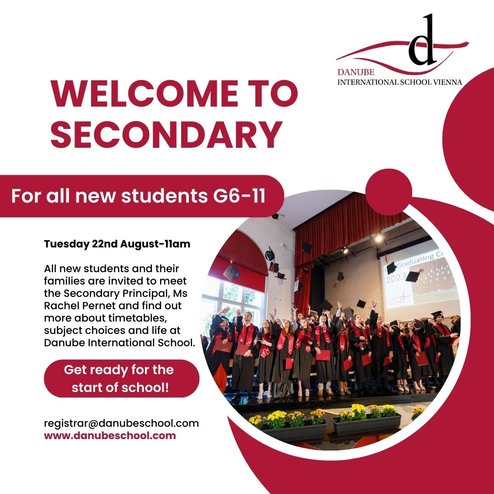
WELCOME TO SECONDARY
Danube International School Vienna | 22 August 2023 | 11:00 am

WELCOME TO ELEMENTARY
Danube International School Vienna | 22 August 2023 | 09:00 am

Summer Camp 2023
Danube International School Vienna | 25 June 2023 | 09:30 am

Information Evening June
Danube International School Vienna | 21 June 2023 | 05:00 pm

Information Evening May
Danube International School Vienna | 31 May 2023 | 05:00 pm

Information Evening March
Danube International School Vienna | 29 March 2023 | 05:30 pm

Information evening February
Danube International School Vienna | 22 February 2023 | 05:00 pm

Information Evening January
Danube International School Vienna | 25 January 2023 | 05:30 pm
2022

CABARET IS BACK AT DANUBE INTERNATIONAL SCHOOL VIENNA!
Danube International School Vienna | 16 December 2022 | 06:00 pm
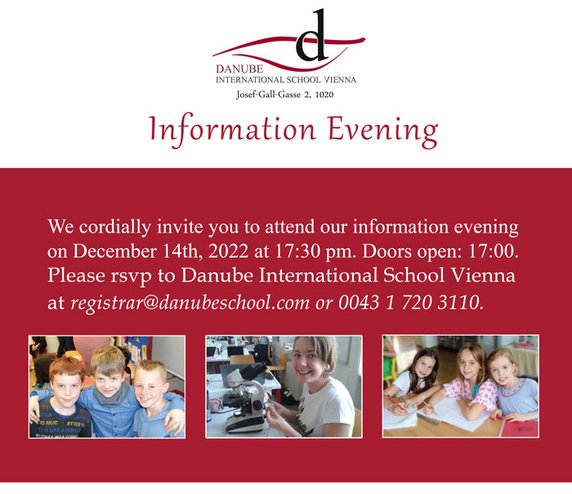
Information Evening December
Danube International School Vienna | 14 December 2022 | 05:00 pm
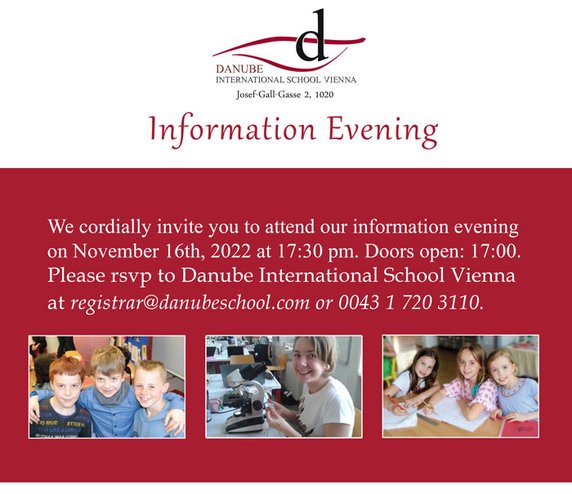
Information Evening
Danube International School Vienna | 16 November 2022 | 05:00 pm
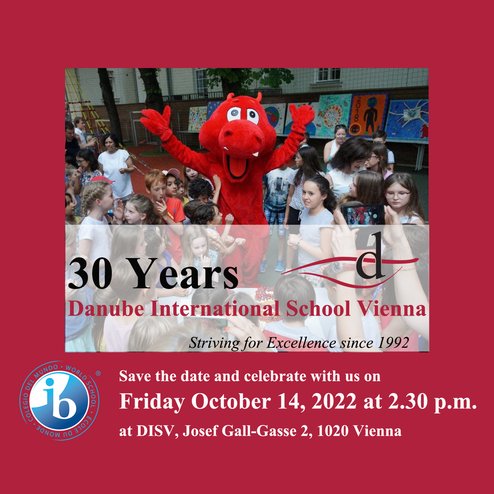
Celebrate 30 Years Danube International School Vienna
Danube International School Vienna | 14 October 2022 | 02:30 pm
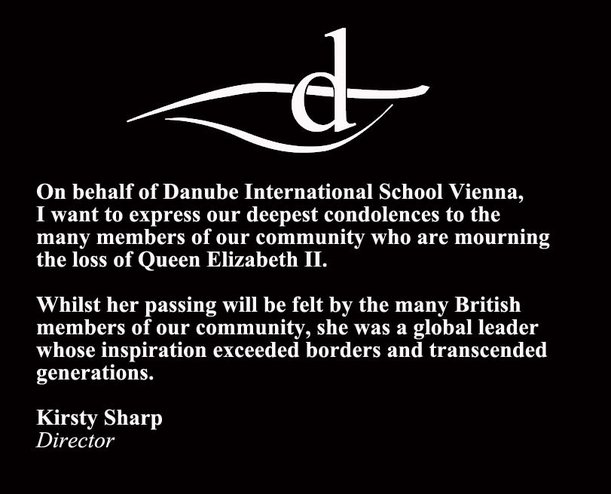
Queen Elizabeth II has died
Balmoral Castle in Scotland | 08 September 2022 | 07:39 pm

Alumni Soccer Tournament
Danube International School Vienna | 26 August 2022 | 04:30 pm
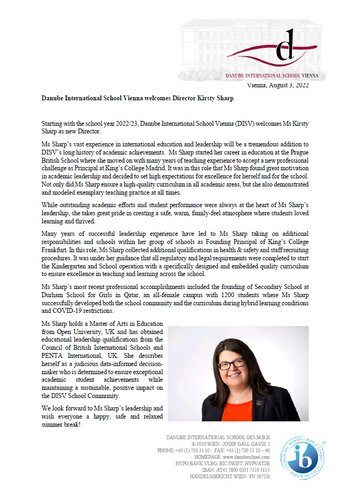
Danube International School Vienna welcomes Director Kirsty Sharp
Danube International School Vienna | 01 August 2022 | 09:00 am

Summer Camp 2022
Danube International School Vienna | 27 June 2022 | 09:00 am

Information Evening
Danube International School Vienna | 14 June 2022 | 05:30 pm

Summer book fair
Danube International School Vienna | 13 June 2022 | 11:00 am
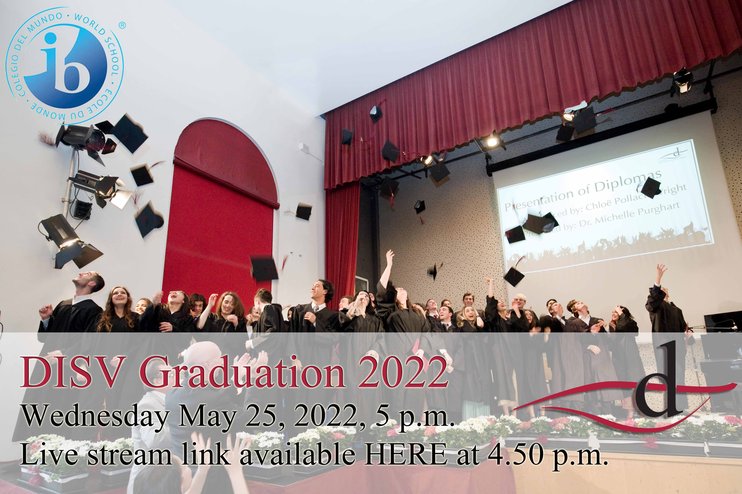
Graduation 2022
Danube International School Vienna | 25 May 2022 | 05:00 pm

Waluka Bazaar
Danube International School Vienna | 04 May 2022 | 05:00 pm
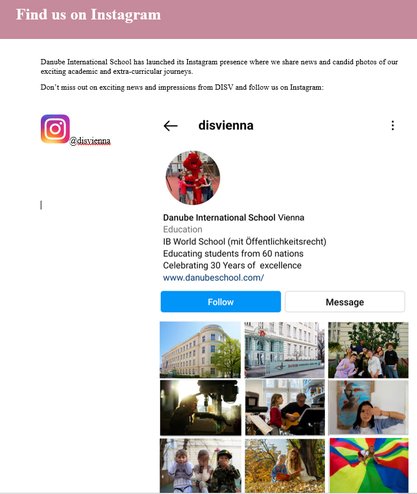
Find us on Instagram
Danube International School Vienna | 25 April 2022 | 10:00 am
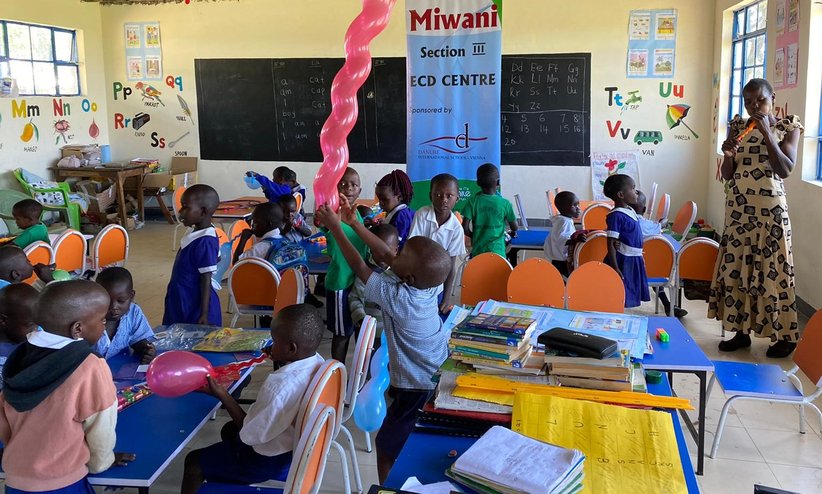
construction works at our partner school Miwani Primary School
Kenya | 19 April 2022 | 10:00 am

Graduating Class of 2022
Danube International School Vienna | 31 March 2022 | 01:00 pm
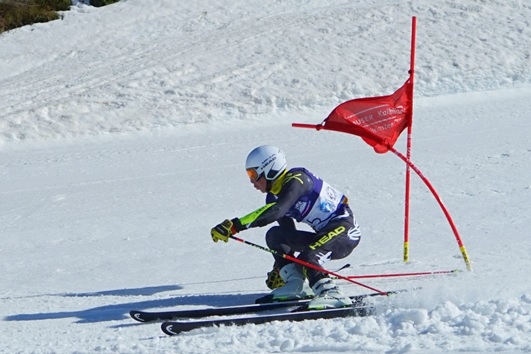
ski races at Haus im Ennstal
Haus im Ennstal | 26 March 2022 | 03:00 pm
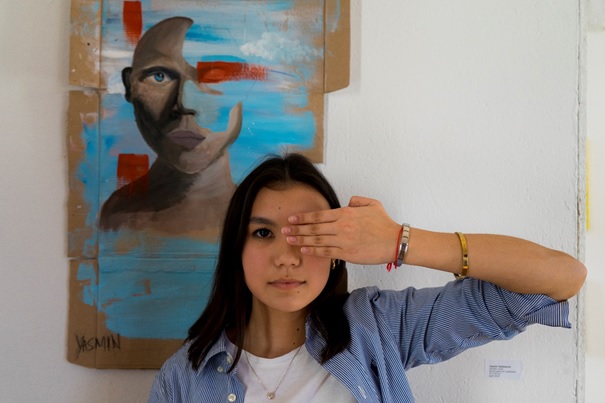
IB Diploma Art Exhibition
Danube International School Vienna | 17 March 2022 | 06:00 pm
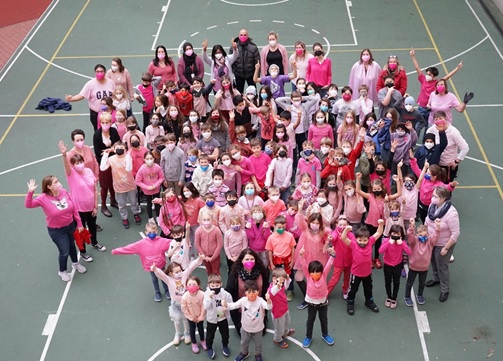
Pink Shirt Day
Danube International School Vienna | 17 February 2022 | 09:00 am
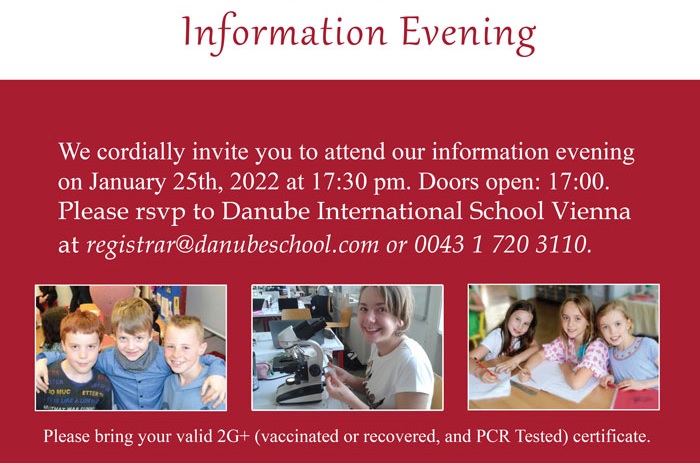
INFORMATION EVENING JANUARY
Danube International School Vienna | 25 January 2022 | 05:30 pm
2021

Elementary International Day
Danube International School Vienna | 30 November 2021 | 11:00 am
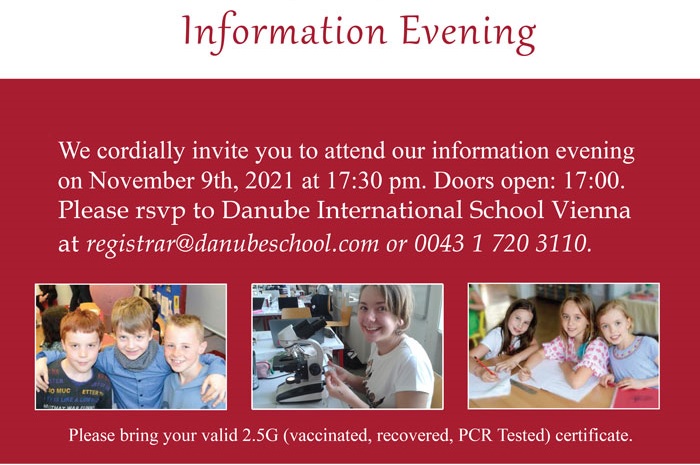
Information Evening November
Danube International School Vienna | 09 November 2021 | 04:00 pm
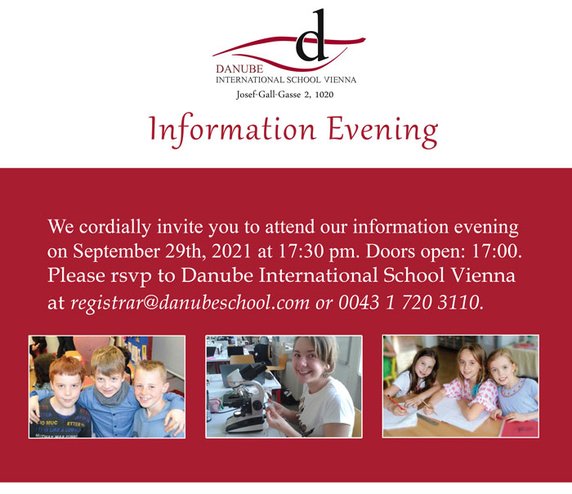
Information Evening September
Danube International School Vienna | 29 September 2021 | 05:00 pm
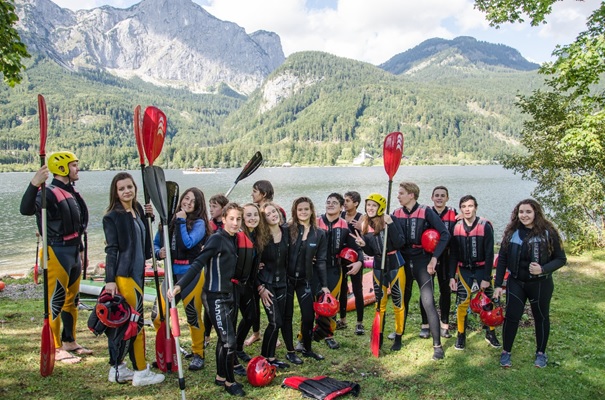
Secondary School Challenge Week
Grundlsee | 02 September 2021 | 10:00 am

Orientation Day
Danube International School Vienna | 23 August 2021 | 09:00 am

Information Evening August
Danube International School Vienna | 19 August 2021 | 05:00 pm

Summer Camp 2021
Danube International School Vienna | 28 June 2021 | 08:30 am
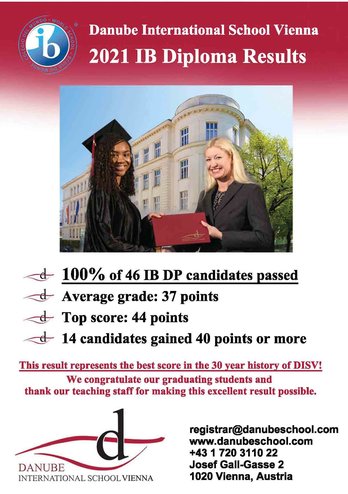
2021 IB Diploma Results
DANUBE | 25 June 2021 | 06:00 pm
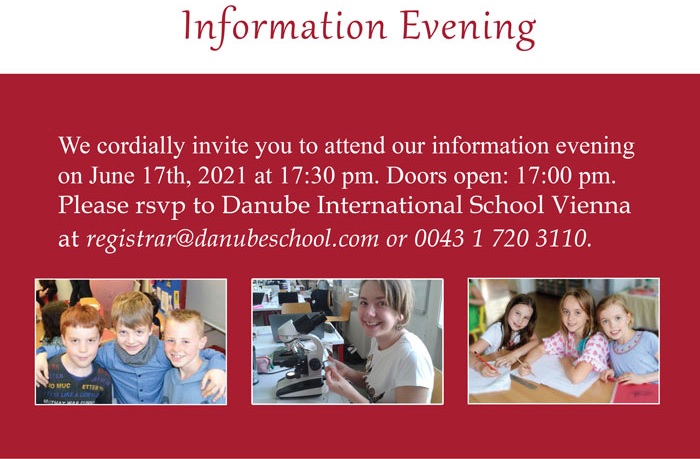
Information Evening June
Danube International School Vienna | 17 June 2021 | 05:30 pm

Information Evening Mai
Danube International School Vienna | 20 May 2021 | 05:00 pm
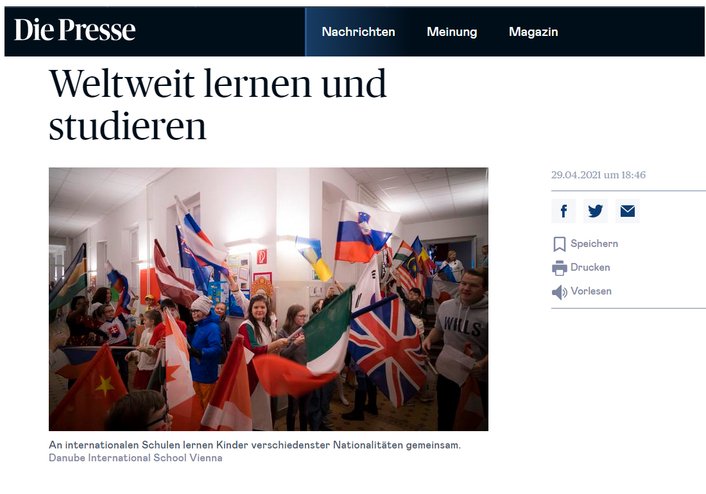
Learning and studying worldwide
Danube International School Vienna | 30 April 2021 | 09:00 am

Information Evening April
Danube International School Vienna | 21 April 2021 | 05:00 pm
2020
Kenyan Charities Christmas Basket Fundraiser
WALUKA | 18 December 2020 | 01:26 pm
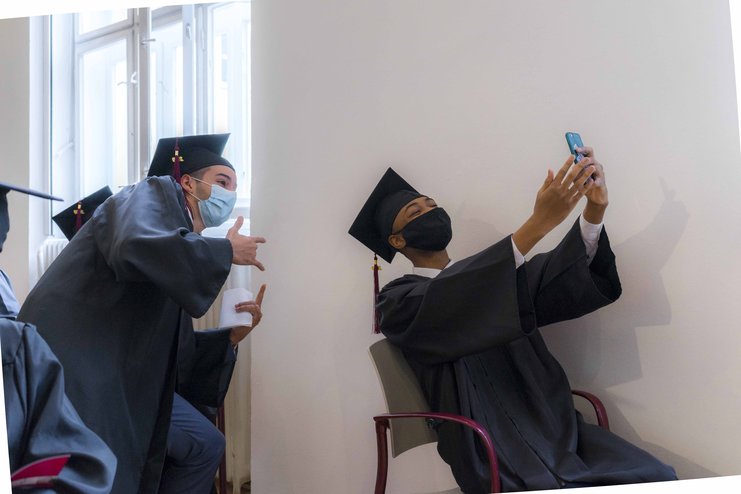
Even in the time of Covid, students' bonds and emotions
Danube International School Vienna | 12 May 2020 | 02:00 am

10th Grade Projects January 2020
Danube International School Vienna | 12 January 2020 | 01:00 am
2019

Lantern Fest
Danube International School Vienna | 27 November 2019 | 01:00 am

Our DANUBE Community works hard to build unique experiences
Danube International School Vienna | 27 November 2019 | 01:00 am
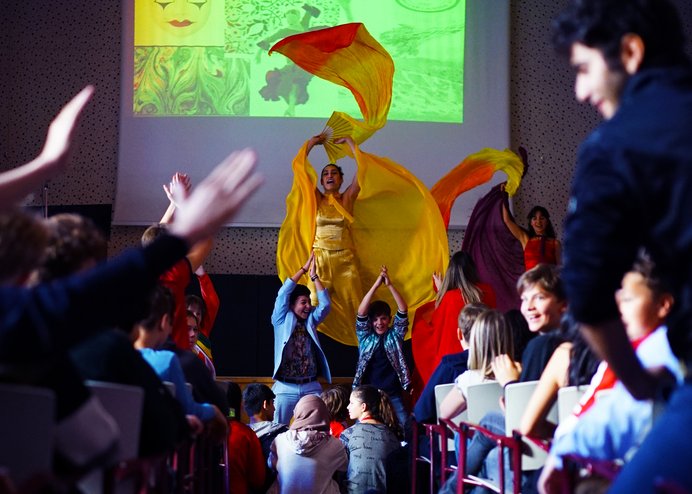
International Day 2019
DISV | 06 February 2019 | 01:26 pm

